/SameerIndricotherium-56a2544f5f9b58b7d0c91bc0-5c1d619746e0fb0001b6b9b3.jpg)
The 20 Biggest Prehistoric Mammals
25. Arthropleura Arthropleura | Warpaintcobra via iStock The Arthropleura was a giant millipede that grew to a length of up to eight feet and had more than 700 legs. It is considered one of the largest terrestrial invertebrates to have ever lived. Arthropleura lived during the Carboniferous Period about 300 million years ago.

Mammal diversity exploded immediately after dinosaur extinction
Amphibians Birds Habitat Profiles Mammals Reptiles Insects Marine Life Forestry Dinosaurs Basics Paleontologists Carnivores Dinosaurs & Birds Herbivores Marine Reptiles Prehistoric Mammals Evolution 10 Facts About the Tasmanian Tiger 10 Recently Extinct Horse Breeds The 20 Biggest Prehistoric Mammals The Evolution of the First Mammals
/recently-extinct-animals-10921572-98236fa1f9c84e5ca28a32cb7cc57d74.png)
100 Recently Extinct Animals
Mosasaurus i This is the one creature that made it in Jurassic World. The Mosasaurus ruled the ocean during the Cretaceous period and are closely related to snakes or monitor lizards we see today. They were fast in the water with powerful tails that propelled them and small flippers that allowed them to easily maneuver to find their prey.

Prähistorische Königreich Official Blog für Prähistorische Königreich
Awe-inducing creatures like mastodons, giant ground sloths, saber-toothed cats and even dire wolves (yep, they were a real thing — not just a "Game of Thrones" fantasy) have sadly gone extinct since the last ice age ended about 11,700 years ago. But that doesn't mean you're out of luck in seeing prehistoric animals today.

Extinct Animals of North America Extinct animals, Ancient animals
The Mesozoic Era (also known as the age of dinosaurs) saw some of the biggest animals walk the planet. Dinosaurs grew to astronomical sizes, towering high above all other animals in their ecosystem. Mammals have been for more than 200 million years, meaning they were there during the time of the dinosaurs.
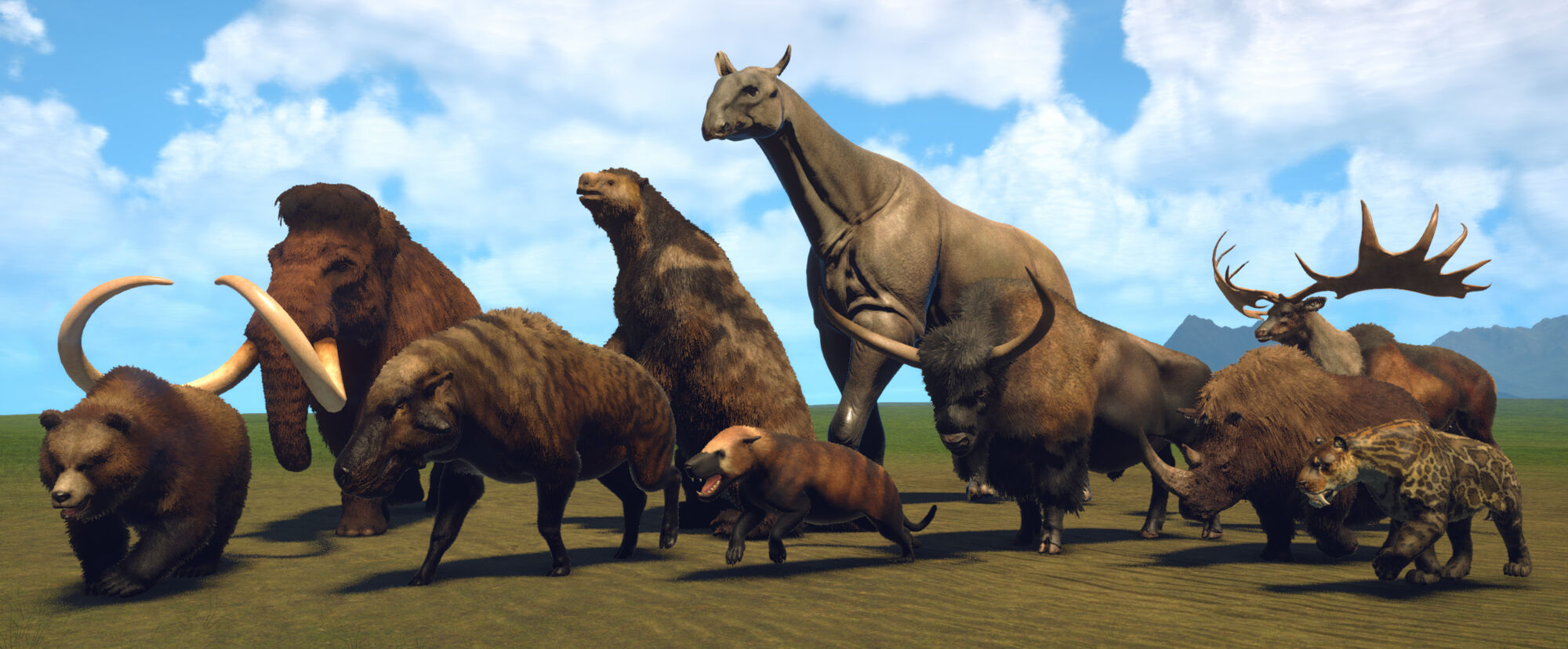
Mammals Prehistoric Kingdom Wiki Fandom
The first animals that lived on Earth roamed the seas. The oceans were ruled by jawless, mostly spineless creatures that look alien compared with modern ocean life. The earliest animals with.

Image result for prehistoric mammals Prehistoric animals, Ancient
Basilosaurus was around 21 m (70 ft.) long and had a 1.5 m (5 ft.) skull. Its jaws were full of long, dagger-like teeth. Analysis of its skull suggests that it may have had the strongest bite force of any animal! Brygmophyseter Brygmophyseter was an early sperm whale that lived in the Miocene epoch.

20 Extinct Giants of Prehistoric Times
(June 2022) This is an incomplete list of prehistoric mammals. It does not include extant mammals or recently extinct mammals. For extinct primate species, see: list of fossil primates. [1] [2] Mammaliaformes Adelobasileus Genus † Adelobasileus Lucas & Hunt 1990 Genus † Bocaconodon Montellano, Hopson & Clark 2008
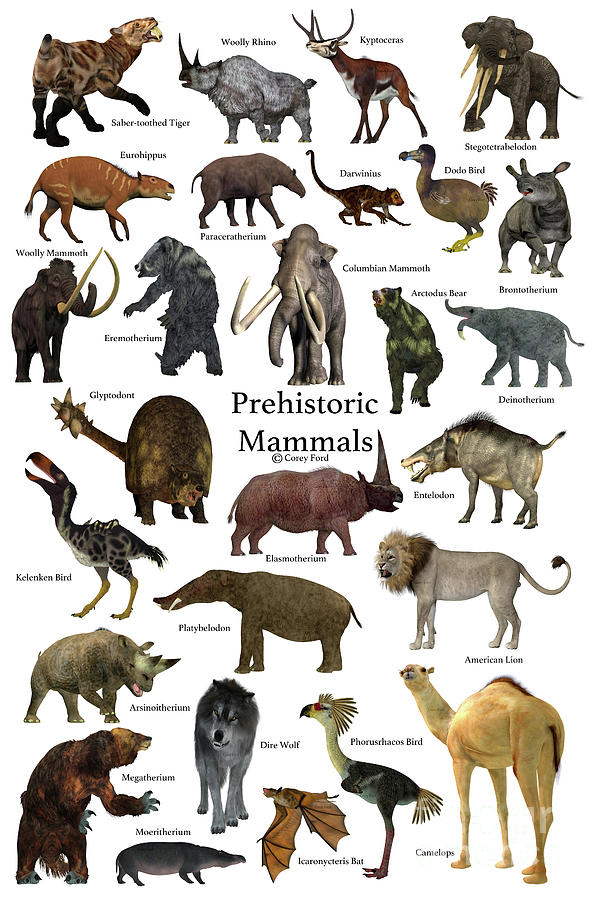
Prehistoric Mammals Digital Art by Corey Ford Pixels
Prehistoric. More than 99% of all species that have ever lived on Earth are now extinct. Unearth stories about the prehistoric creatures that once roamed Earth and swam in ancient oceans, and explore what Museum fossils and palaeontologists are revealing about prehistoric life. Science news.

Prehistoric Mammals collection( Updated !!!!) by HellraptorStudios on
The Largest Known Elephant: The Steppe Mammoth. The furry prehistoric animal known as the steppe mammoth was the largest elephant that ever lived. Fossils of steppe mammoth up to 15 feet (4.5 meters) in height and nine to 11 tons in weight have been found. In contrast, modern African elephants are between 8.2 and 13 feet tall.

Proboscídeos prehistóricos Prehistoric Wildlife, Prehistoric World
1Non-mammalian synapsids (Synapsida) Toggle Non-mammalian synapsids (Synapsida) subsection 1.1Caseasaurs (Caseasauria)
I made this prehistoric animal size comparison chart based off of the
52-million-year-old bat skeletons are the oldest ever—and tell a 'really weird' tale

Prehistoric Animals List of Prehistoric Animals with Useful Facts • 7ESL
Sponges, corals, sea stars (starfish), snails, and clams—all familiar creatures today—can be traced back 500 million years or more. Spiders originated almost 400 million years ago. Insects and sharks also have long histories. Dinosaurs dominated the Earth for more than 150 million years and then vanished.
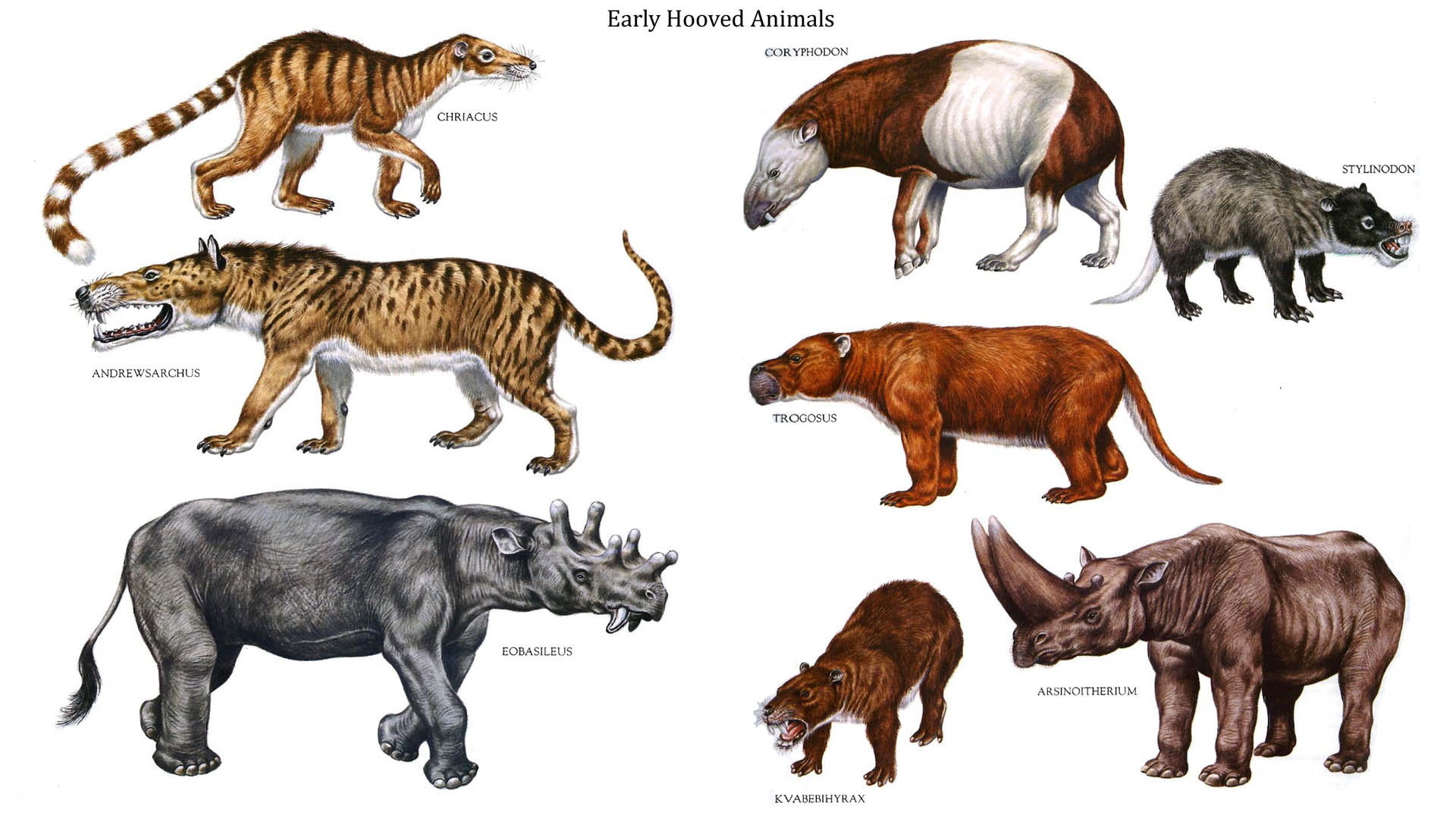
Pin on Evolution of Mammals
Anchiornis - A four-winged dino-bird that resembled Microraptor. Anchisaurus - One of the first dinosaurs ever to be dug up in the U.S. Andesaurus - This titanosaur rivaled Argentinosaurus in size. Angaturama - A Brazilian relative of Spinosaurus. Angolatitan - The first dinosaur ever to be discovered in Angola.
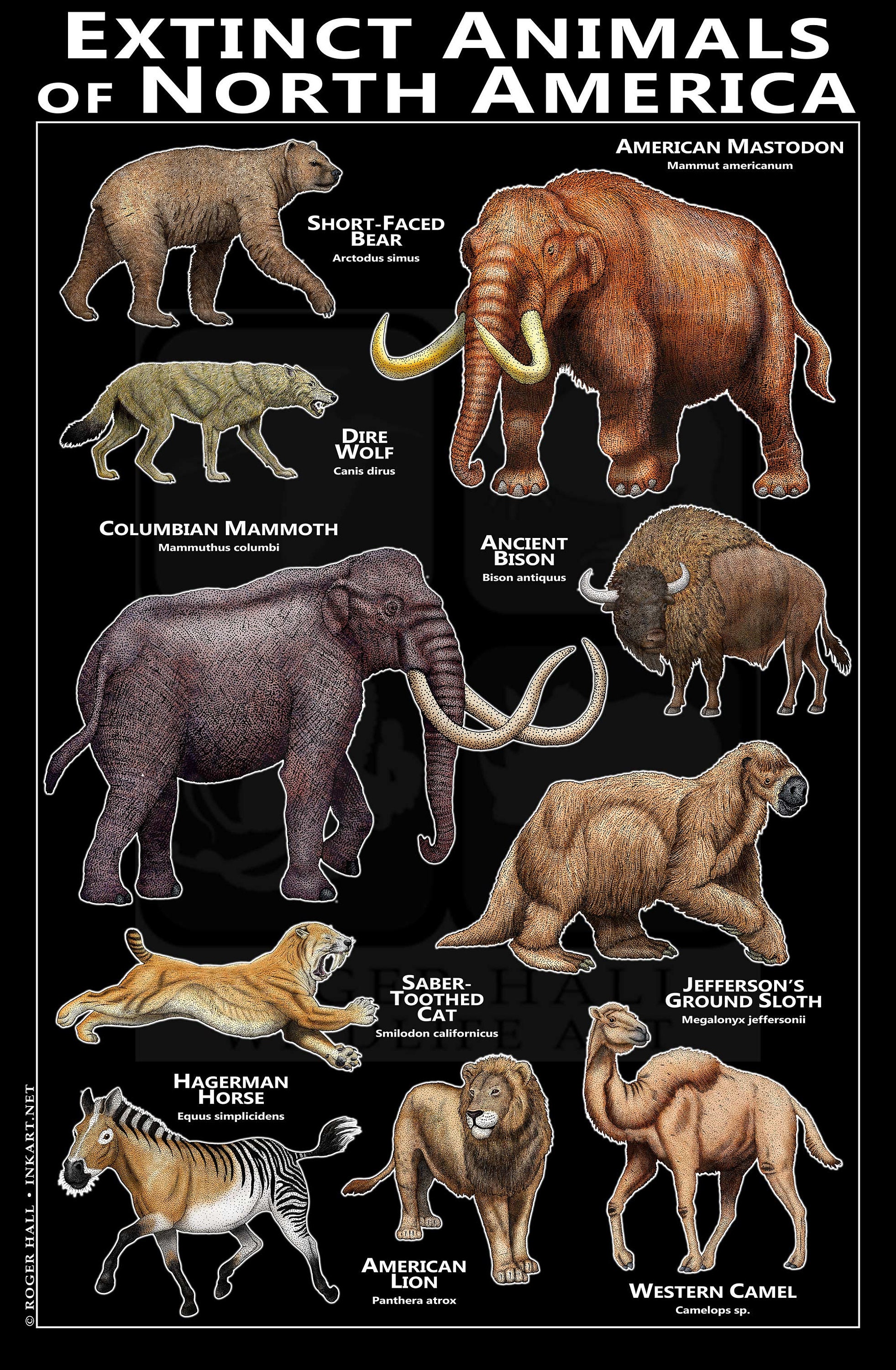
Extinct Animals of North America Poster Etsy
11 Of Ancient Earth's Most Unbelievable Prehistoric Animals By For thousands to millions of years, these massive creatures stalked Earth at its dawn, until climate change — or early man — hastened their demise. Prehistoric animals once roamed — and ruled — planet Earth. Some of them, like the giant sloth or the woolly rhino, were generally gentle.

Prehistoric animals, Ancient animals, Prehistoric wildlife
Ali and Sean travel back 150 million years to the Jurassic period to get a look at a flying dinosaur called the Anchiornis. Tour guide Simon reveals that this dinosaur actually had feathers! Now Playing. 2:32.